Living through Loss
As my father approached the end-of-life at the long term care home where he had spent the last few months of his life, I received a telephone call in the early hours of the morning from the head nurse informing me that he had begun a quick decline and urging me to come home to Ontario. So I hastily packed some clothes and cancelled some of my work commitments and was on the plane to Toronto later that day. I had been living and working on the west coast for the past nine years visiting my family when I could a couple of times a year. During Dad’s illness I tried to make it back as often as I could and in fact had just spent two weeks there. We now understood that Dad was in the final stages of a Parkinson’s like illness and I felt torn at living so far from home and wanting to spend as much time with him as possible. It had been a struggle, seeing him lying in bed with very little mobility and difficulty in speaking except for a word or short sentence occasionally. It was heartbreaking at times to watch him struggle to understand what was happening to him and to know that he was not at peace. And yet it seemed that there was some healing process at work when his resilience would shine through. Every night the same nurse came in to give him his medication and asked him the same question, “Well Bob, any words of wisdom for me tonite?” And he would usually have a brief reply, dispensing some advice to live by. One time he answered, “Be your own man!”
Much of the time, though he seemed to be processing a lot on the inside, invisible to us his family and friends who could only offer our presence and wait as the illness progressed. As a palliative care counsellor, I was aware of the healing potential at end-of-life; not only for the patient but also for family and friends who witnessed the final transition from life to death. And so, the time I spent by my father’s bedside – feeding him, reading to him, massaging his legs and feet, or just holding his hand – all seemed to be an invitation to a greater intimacy and connection between us. I knew that time together was short, and wanted to spend as much with him as possible.
And now it seemed as though time had run out. Would I get there in time to join the family in this our final journey with him, I wondered? As I drove from the airport to where he was that night, I noticed the biggest and brightest full moon that I had ever seen. It hung very low in the night sky and seemed to be lighting the way back, the way home. I arrived to find some of the family at his side, my father appeared to be mostly unconscious but comfortable. The morphine that was being given may hasten his death, we were told. I decided to spend the night with him in his room while the others went home to get some sleep. What could I say or do, I wondered to help him? I decided to pray, and read a few passages from his mother’s old bible which I found near his bed. Did he even know that I was there, reading to him, could he hear me? I had no way of knowing and felt helpless as I watched and waited for some change.
It had been a long illness for him and for us. The most difficult part I think, were the gradual losses that came with the decline in ability. The loss of clear speech, the ability to write, the privilege of driving his car, and most of all his self confidence and strength. Surrendering to these losses and to the ultimate loss of his physical presence was both emotional and frightening. But none of us wished for his life to continue in this form and we knew that he didn’t want to go on either.
By morning there had been no visible change and so I went home to rest as other family members kept vigil in the room. By the time I returned it was almost time for supper and someone suggested that we bring in some take out food and eat it down the hall in the family dining room. And so that’s what we did, leaving his room to eat, all but my sister who felt that she wanted to stay near him. As I left his room, glancing back at he and my sister, I knew clearly that his death was imminent. Nonetheless, I left anyway, sensing that things were unfolding as they should. Years earlier I had learned that it was sometimes the moment when the crowd gathered round the bed left to eat or grab a coffee that the patient could let go of all things earth bound and make the final transition. It was no surprise then, when moments later, the nurse called us to return at once to his room. At that moment as we began to walk back down the long corridor to his room I heard the words and music of the battle hymn of the republic. The music therapist was leading the residents in a hymn sing, “His truth is marching on…” rang out loud and clear as we returned to his room.
I believe that my father’s death impacted us all profoundly and touched us each in a unique way – not only on that cold winter day in March, but on all the days and months to come. Someone once said that grief is as much about finding as it is about losing. Certainly we could all agree on the many ways that we felt the sting of loss. We missed his physical presence immensely. That Christmas eve, the first without Dad, I thought I was doing OK until I began to carve the traditional roast beef, a job that always been his. Suddenly I was overcome by a wave of sadness that he wasn’t with us as he should have been. And there would be many more times in the journey of grief when that same wave would come crashing down upon me in ways that were both uncomfortable and cathartic at the same time.
The “finding” part of grief was present too – if I looked for it. At times that was difficult, but when I asked Dad for guidance and for his presence, I was often surprised by the results. After his death, the night nurse shared with us her last conversation with him,
just before he slipped into unconsciousness. Again, the request for his words of wisdom, as she made her nightly rounds. His reply this time was just one word – the last that he likely spoke to anyone: happiness. It seemed that perhaps he wanted to leave us with one final truth, one last charge – to find happiness. Or, was he telling her that he had in fact found happiness at the end, and was finally in a place of peace. A few weeks later, my sister-in-law gave me a small charm on a necklace as a gift in the shape of a Chinese character. I had no idea of its significance until I was chatting with a neighbor of my parents while wearing it. “What is that you have around your neck?” she asked. I replied that it had been a gift. She took a closer look and declared, “Oh! It means happiness!” I was astonished. There was his word again – happiness, and now I was wearing it around my neck! Ever since, I have been left with a quest of sorts, to learn the meaning of happiness in my life.



